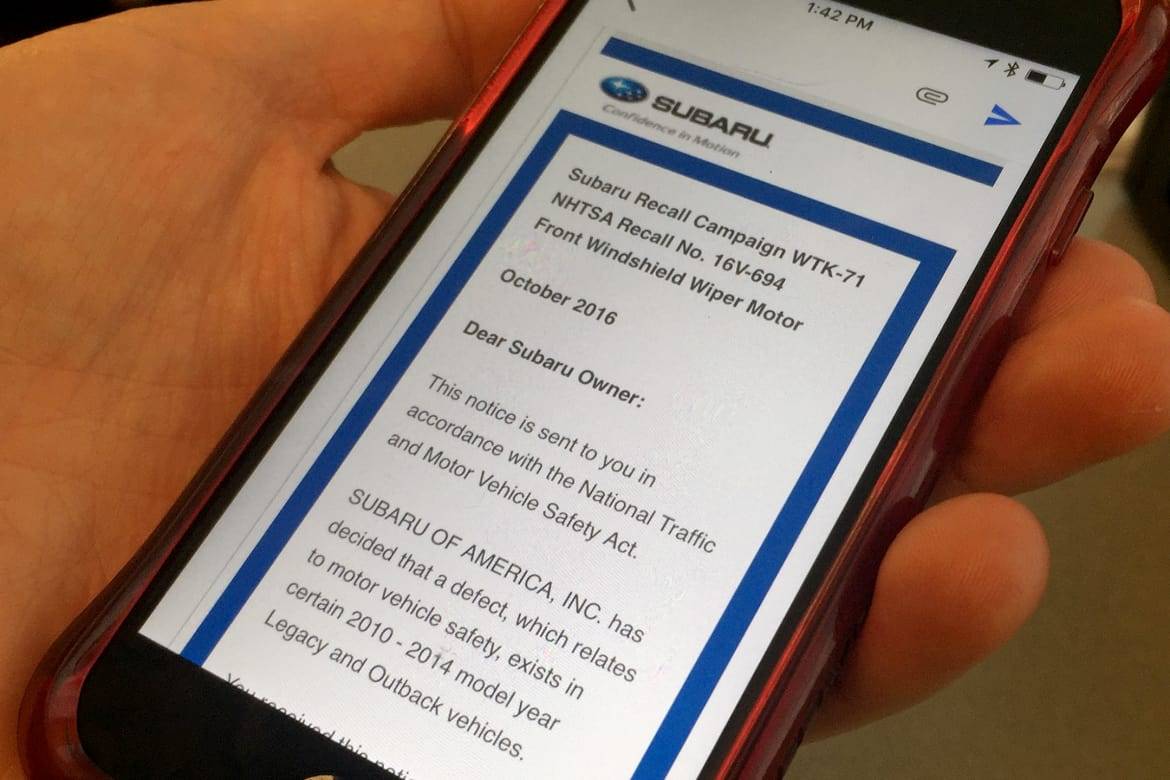9 Reasons You Blow Off Recalls


CARS.COM — Automakers issued more than three times as many safety recalls for nearly three times as many cars in 2015 as they did two decades earlier. Out of all types of product recalls, consumers polled in a recent study by researchers from the University of Michigan’s Transportation Research Institute were most aware of automotive ones — more than two-thirds, in fact, compared with just 39 percent for food recalls, 12 percent for household electronics and child-safety seats, and 11 percent for major appliances.
Related: Video: Why It’s Important to Pay Attention to Recalls
“Compounding the problem of the large number of vehicle-related recalls is the relatively low response rate to recall notices,” UMTRI researchers Michael Sivak and Brandon Schoettle stated in their report. “According to [the National Highway Traffic Safety Administration], about 20 percent of vehicles that are recalled go unrepaired.”
Here are the top reasons survey respondents gave for blowing off their recall notices, followed by the percentage doing so:
9. “I haven’t experienced the problem described in the recall,” 19 percent
8. “I’m not sure if recall repairs are optional or required,” 23 percent
7. “I don’t know what to do or who to contact,” 26 percent
6. “I’m not certain whether the recall applies to my specific vehicle,” 26 percent
5. “I don’t know when, or how soon, I need to get the repair,” 26 percent
4. “I don’t know how important it is to get this repair,” 30 percent
3. “I don’t want to wait that long to have it repaired,” 36 percent
2. “I don’t want to not have access to my car while it’s being fixed,” 37 percent
1. “They will try to sell me additional repairs during the visit,” 38 percent
Indeed, motorists’ mistrust of repair shops and their reputation, deserved or not, for pushing people into extra services is a statistically strong one. But after several massive, high-profile recalls in recent years for deadly defects — most notably the ongoing Takata exploding airbag crisis affecting millions of vehicles in the U.S. — there’s no scarcity of reminders that neglecting recalls could mean life or death.
UMTRI survey respondents showed they were far more likely to have new vehicles repaired than relatively older ones — 83 percent compared with just 50 percent. They were three times more likely to get defects fixed for “high-risk” recalls versus “low-risk” ones (say, fire risk from a leaky gas tank versus an incorrect doorjamb sticker). They were also nearly three times more likely to have repairs made if the wait time for service was a week versus six months, and twice as likely to have the problem taken care of if the distance to the nearest repair facility is 15 minutes versus a half-hour.
So what can regulators and automakers do to convince car owners to tend to their recalls?
About three-fifths of survey respondents said they would respond to consequences such as not being able to renew their vehicle registration or sell their vehicle until recalls were repaired.
Another idea: Automakers could bundle recall repairs with regularly scheduled service such as an oil change or tire rotation, or offer such services for free with a recall repair, with about half seeing this as sufficient incentive.
Click here for Cars.com’s recall coverage.

Former Assistant Managing Editor-News Matt Schmitz is a veteran Chicago journalist indulging his curiosity for all things auto while helping to inform car shoppers.
Featured stories



